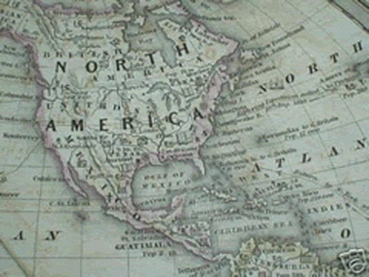Scottish Philosophy in North America

The Scottish universities, especially the medical school in Edinburgh, were important models for the colleges emerging in the American colonies in the first half of the 18th century. Given the place of philosophy in the curriculum of the Scottish universities, it was inevitable that Scottish philosophy too would be influential. One of the earliest channels of this influence was Francis Alison (1705-79) a key figure in the establishment of the College of Philadelphia, subsequently the University of Pennsylvania. Alison was an Ulsterman by birth, but a graduate of both the University of Edinburgh and the University of Glasgow. Recruited to the new College in 1752 by Benjamin Franklin (who had himself studied at Edinburgh), Alison was instrumental in bringing the philosophical ideas of Francis Hutcheson to America. Shortly after taking up his post in Philadelphia, he was joined by William Smith who had been a student at King's College Aberdeen from 1743-47, the period when Thomas Reid was teaching there. Smith's educational ideas, which shaped the curriculum in Philadelphia, were inspired in large part by the curricular reforms introduced at King's and Marischal in Aberdeen in 1753.
Alison's influence in the world of education spread well beyond Philadelphia. He was highly regarded by Ezra Stiles, President of Yale, who was himself an honorary graduate of Edinburgh, and his work was known and respected in Harvard. His hopes of succeeding Samuel Finley as President of the College of New Jersey (now Princeton University) in 1766 proved unfounded, but John Witherspoon who did succeed Finley (in 1767) –– played an even larger role in extending the influence of Scottish philosophy on the development of higher education in the original colonies. Witherspoon was a graduate of Glasgow, and established a connection between Scotland and Princeton that was to stretch over a century and more.
The prestige of the College of New Jersey (founded 1726), and the moral philosophy textbook that Witherspoon wrote for his students, ensured that the influence of the Scottish philosophical tradition on the emerging liberal arts colleges and protestant seminaries of the United States was considerable, to the point where the works of Thomas Reid, Dugald Stewart, Sir William Hamilton (and their students) provided the basic material for philosophy courses in many states. It is truly remarkable how widespread this adherence to Scottish philosophy was. Important 19th century figures include Francis Wayland (1796-1865), a student at Union College in New York State and subsequently President of Brown University in Rhode Island, Noah Porter (1811-92), first Professor of Moral Philosophy and Metaphysics, and then President of Yale in Connecticut, Archibald Alexander, one of the inaugural professors at Princeton Theological Seminary founded in 1812, and William Carey Crane (1816-85), President of Baylor University in Texas.
The Scottish influence was reinforced by the widespread use of textbooks by Scottish philosophers, especially in ethics. The Elements of Moral Philosophy by David Fordyce was an early example, and Thomas Jefferson (who had met Dugald Stewart in Paris in 1788) many years later congratulated him on having his Philosophy of the Human Mind having 'become the text book of most of our colleges and academies'.
The flow of philosophers from Scotland to the United States continued through the 19th Century and into the 20th. James McCosh, another Glasgow educated philosopher and professor (at Queen's College Belfast) became President of the College of New Jersey in 1868. Archibald A Bowman was Professor of Philosophy at Princeton University for thirteen years (1912-25) before returning to the Chair of Logic at Glasgow, and Norman Kemp Smith, a graduate of St Andrews famous for his work on both Kant and Hume, taught philosophy at Princeton before taking up the Chair of Logic and Metaphysics at Edinburgh. James Seth was a professor at Cornell before returning to the Chair of Moral Philosophy at Edinburgh vacated by his teacher Henry Calderwood. Both Seth and Calderwood published ethics textbooks that were widely used in the USA and Canada. Calderwood's was subsequently re-issued and is still in print.
The first universities were established in Canada in the mid-nineteenth century. This predominant philosophical influence was a version of Reid's 'common sense' philosophy, as transmitted bySir William Hamilton. Subsequently, the Idealism that displaced the school of common sense in Scotland, came to have important impact in Canada also.